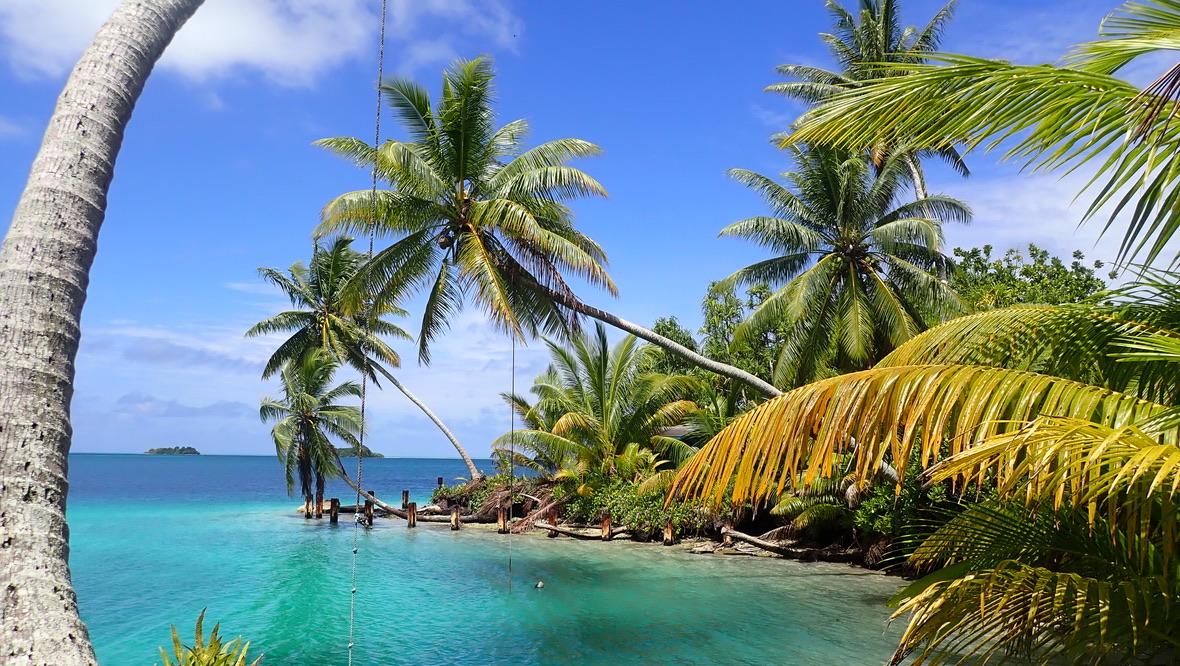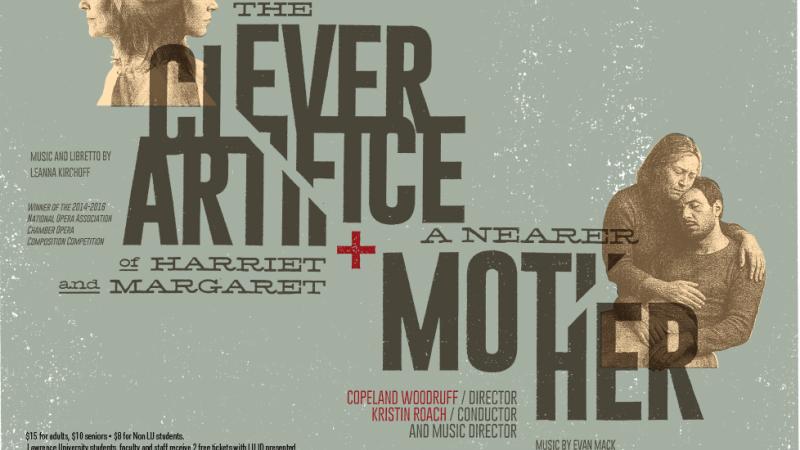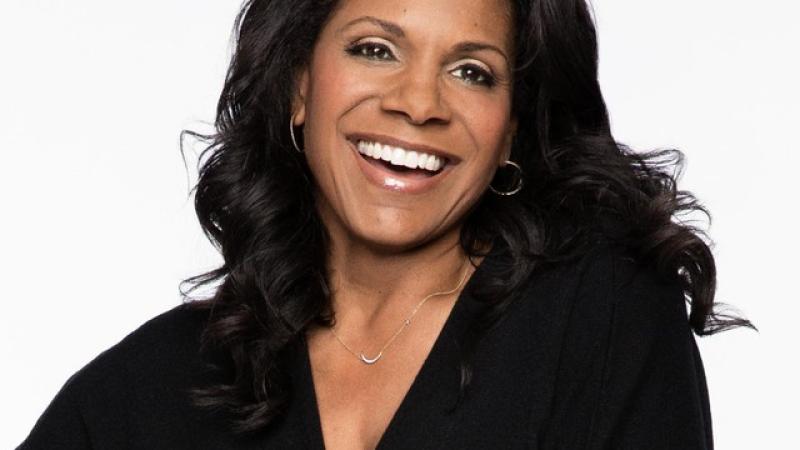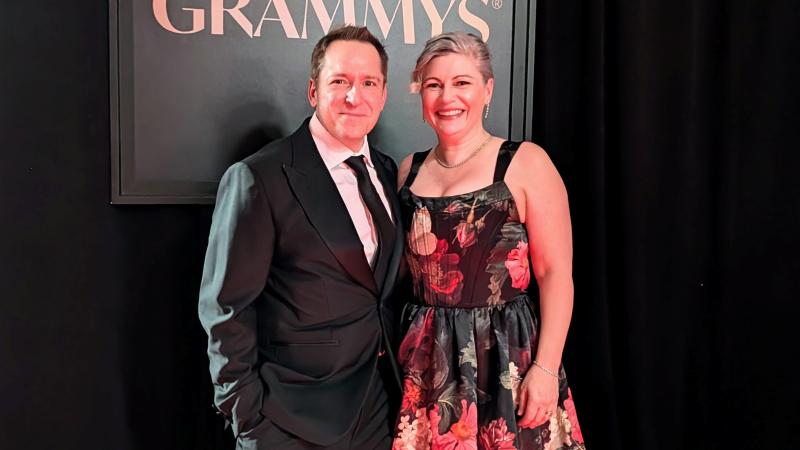During Winter Term 2022, Lawrence seniors Katie Mahorney and Emily McFarland embarked on The Global Ocean: Hawaii, a program offered by the Sea Education Association in which students spend six weeks on a ship in the Pacific designing and carrying out oceanic research projects.
The Sea Education Association is an organization that gives college students from across the country the opportunity to undertake collaborative research experiences. With a fleet of three ships and their own crew, the association allows students to step out of their comfort zones into a challenging but supportive environment.
Katie Mahorney '22 and Emily McFarland '22 on their Pacific journey.
With 34 other people on board, the 134-foot boat sailed from Honolulu, Hawaii to Palmyra Atoll, a remote American island. During the voyage, the students worked as full crew members aboard the ship.
“It was definitely a lifestyle change,” McFarland said.
Besides research, the students’ responsibilities included tasks such as watch duties, kitchen help, managing the sails, and helping with other students’ projects.
“Everybody collects data for everyone’s projects, and then it’s up to each individual group to analyze and actually write up their papers,” Mahorney said.
Off-campus study at Lawrence is designed to be an essential part of your learning experience.
For their project, Mahorney, McFarland, and a third student studied ocean acidification and its effects on pteropods, a small type of crustacean. They theorized they would find fewer pteropods in more acidic areas because acid harms pteropod shells.
“Our data was a little bit inconclusive, but I think that’s a lot of scientific projects in the real world, especially in the ocean,” Mahorney said.
McFarland said, “It was still really cool to be able to experience science out in the field like that; It’s definitely not something that I’ve ever done before.”
Midway through the course, the boat arrived at Palmyra Atoll, which houses about a dozen scientists at a time. The students learned about their work including mosquito eradication, ecosystem rehabilitation, tracking seabird migrations, reintroduction of native bird species, removal of invasive coconut palms, and coral reef rehabilitation.
“I think a big part of what our program was trying to emphasize was how islands are sort of analogs for what’s happening with climate change in general, so all the impacts that you see on islands, it’s happening first,” Mahorney said.
Lawrence University Marine Program (LUMP) takes students to Caribbean island for marine research
The students spent four days at Palmyra, where they found time to snorkel and explore the extensive coral reefs and marine life. Mahorney said some crew members compared Palmyra to the Great Barrier Reef.
The journey was filled with hard work and research, but Mahorney and McFarland said the ship’s staff and other students made the trip an unforgettable experience.
“We had fresh produce and fresh veggies the entire six weeks we were at sea, which is crazy… I don’t think I could make lettuce last that long at my house,” Mahorney said.
The cooks also baked cakes for birthdays and the crew taught students about celestial navigation and leadership.
“Honestly, my favorite part was just being really present on that boat for six weeks,” Mahorney said. “We didn’t have internet connection, no cell service … that was really nice, just being able to interact with people without all these distractions.”
Mahorney and McFarland also had incredible wildlife stories from the trip. Mahorney saw an eight-foot manta ray on one of her swims.
“We were anchored in Māʻalaea Bay, which is off of Maui, for a few days,” McFarland said. “We saw so many humpback whales. … If you held your head underwater you could hear them calling each other; it was so cool.”
The voyage and program ended on March 26, allowing Mahorney and McFarland to return to Lawrence and enjoy most of Spring Term.
Despite graduating from Lawrence on June 12, Mahorney and McFarland haven’t ruled out the possibility of returning on their own to Palmyra. The positions aren’t paid, but volunteers receive free food and lodging.
“I don’t want to necessarily go into the sailing industry, but I think I could see myself doing a short stint for a few months as a deckhand on a boat in the near future,” McFarland said.
Getting their sea legs
Mahorney and McFarland applied to The Global Ocean during their sophomore year when the program was originally planned for New Zealand; the COVID-19 pandemic changed the destination to a journey around Hawaii full of port stops, and finally, Palmyra.
“We both were just going with the flow,” Mahorney said. “We were just happy to go anywhere on a boat.”
A geosciences and environmental studies double major, Mahorney had sailing experience on Lake Winnebago as president of the Lawrence University Sailing Club, but she was interested in the challenge of an ocean project.
“I really valued being able to try something new that I had never thought I would ever do,” she said. … “I’m a geologist: All of my academic work takes place on land.”
A government and environmental studies double major, McFarland had never sailed before the trip, but her connections with the Great Lakes and family on the East Coast piqued her interest, and she said the course was a perfect way to combine her government and environmental studies majors.
“I really wanted to broaden my perspective with water issues,” she said. “My academic and career interests are really focused around fresh-water security. It’s not fresh water, but I thought it’d be really important and valuable to have the experience with the oceans.”
Before the trip, students spent six weeks in Falmouth, Massachusetts at the Woods Hole Oceanographic Institution. They took classes on sustainable oceans, marine environmental history, how outsiders view island communities, and more.
Other groups’ projects included ocean plastics, sizes of myctophids in different water temperatures, the nutrient difference in the water around Hawaii and Palmyra, and ocean currents. Mahorney and McFarland said students of diverse backgrounds and majors participated, including some art majors and a dance major.
The students on the program got small fans, lights, and their own six-foot bunk, but these bunks had to fit everything they brought.
“If you’re looking for a challenge, it’s perfect,” Mahorney said.
“You get the opportunity to remove yourself from society for a second and get to appreciate what Earth has to offer,” McFarland said.



